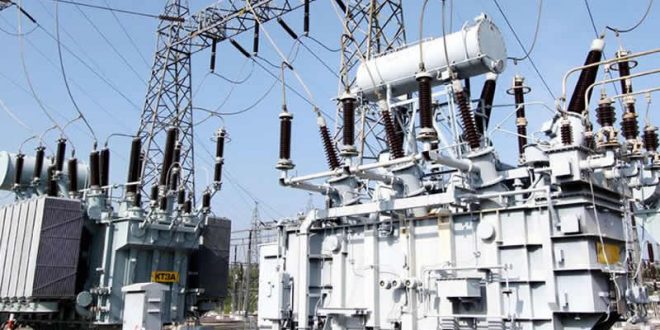
After Several Grid Collapse, FG Promise Stable Power in 2023
Although there were some wins recorded in the country’s energy sector in the year that is winding down, however, it was characterised by a lot of setbacks. Some of the happenings in the year would spill over and have a significant impact on 2023. For instance, the impact of the challenges witnessed in the oil and gas sector such as oil production which dropped to almost all-time low in 2022 would not end with the year. They would shape 2023.
In the power sector, although occurrences of system collapse have reduced, the seven times that the country’s power grid collapsed in 2022 had a significant impact. It almost threw the country to a state of comatose. For instance, the collapse of the power grid on September 25, 2022, crashed power generation from over 3,700MW to as low as 38MW.
This was despite the billions the Federal Government invested in the Transmission Company of Nigeria, with assurance from the sector’s regulator, the Nigerian Electricity Regulatory Commission, to ramp up generation and distribution to at least 5,000MW.
Also, phase 1 of the Federal Government’s eight million free metering programme billed to commence in August was also put on hold due to allegations of embezzlement and corruption levied against some of the meter providers.
Six out of the 11 electricity distribution companies- Abuja, Kano, Kaduna, Benin, Ibadan and Port Harcourt DisCos were also reformed because of failure to meet their financial obligations and handed over to banks to run them. The FG had recently ordered the sale of the DisCos’ shares by banks as a way of recovering their loans.
The government had injected N1.5tn into the power sector as intervention funds. The Federal Government, in a bid to address the challenge of epileptic power supply in the country, had undertaken a series of interventions in the power sector to boost its performance capacity. This was apart from its annual budgetary allocations to the Federal Ministry of Power.
A major event that shook the energy sector to its foundation was the organised oil theft and pipeline vandalism, which got to a crescendo this year. These nefarious activities have been ongoing for more than 10 years. It got so bad this year that the country was losing about 700, 000 barrels per day to oil theft. Nigeria recorded its lowest output of 900,000b/d in October. An occurrence that experts say could have contributed to the mass exit of international oil companies from the country.
The death of the Secretary General of Organization of the Petroleum Exporting Countries, Mohammed Barkindo, also shocked the sector. Barkindo, 63, reportedly died in July, hours after meeting President Buhari and giving the main speech at an energy summit in Abuja. The cause of his death was not made public.
Incessant hike in the prices of petroleum products- prices of gas, petrol, kerosene, diesel- was hallmark of the energy sector in 2022. Fuel scarcity has been perpetual in the last quarter of the year.
The average retail price for refilling a 12.5kg Cylinder of Liquefied Petroleum Gas increased by 1.3 per cent on a month-on-month basis from N10,050 in October 2022 to N10,180 in November 2022. On a year-on-year basis, it rose by 39 per cent from N7308.06 in November 2021.
Analysis by zone showed that the South-West had the highest average retail price for refilling a 12.5kg cylinder at N10,561, followed by the South-South with N10,495, while the North-East recorded the lowest price of N9,600.
Prices, however, rose to about N11, 000 per 12.5kg in independent marketers’ outlets.
The price increase was not peculiar to gas. The price of petrol has shot up from around N165/litre to N250/litre at independent marketers’ stations as Nigerians continue to grapple with fuel scarcity. Only a few are able to get petrol for N180/litre at major marketer’s outlets, and N169/litre at fuel stations belonging to NNPCL Retail.
The average price of kerosene currently goes for N1,041 per litre, while diesel sells for N808/litre. The diesel and kerosene market has been deregulated.
The country’s debt in the ongoing case against Process and Industrial Developments Limited for a failed gas contract rose to N5tn in 2022. The case is the fallout from a gas project contract awarded by the Federal Government in 2010 to P&ID. However, the gas processing facility never saw the light of the day due to irreconcilable differences between the parties involved in the contract. After years of legal battle, a London-based arbitration tribunal in 2017 ordered Nigeria to pay $6.6bn compensation to the country to pay P&ID for failing to keep to the terms of the contract.
The compensation to the country to pay P&ID, which has been accruing on a pre and post judgment interest of 7 per cent since 2013, grew from an initial $6.6bn to $11bn, about N5trn in 2022. It was about 30 per cent of the country’s foreign exchange reserves, which stood at $37bn at the end of November.
The contribution of the oil sector to the country’s Gross Domestic fell to 5.7 per cent in the third quarter of the year, according to data sourced from the National Bureau of Statistics.
NBS’s GDP Sector report indicated that the oil sector’s contribution of 5.7 per cent in Q3 2022, was a decline when compared to a 6.3 per cent real GDP contribution recorded in Q2-2022.
